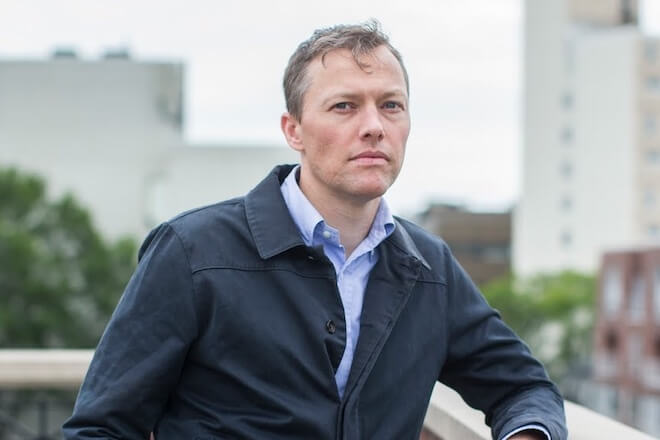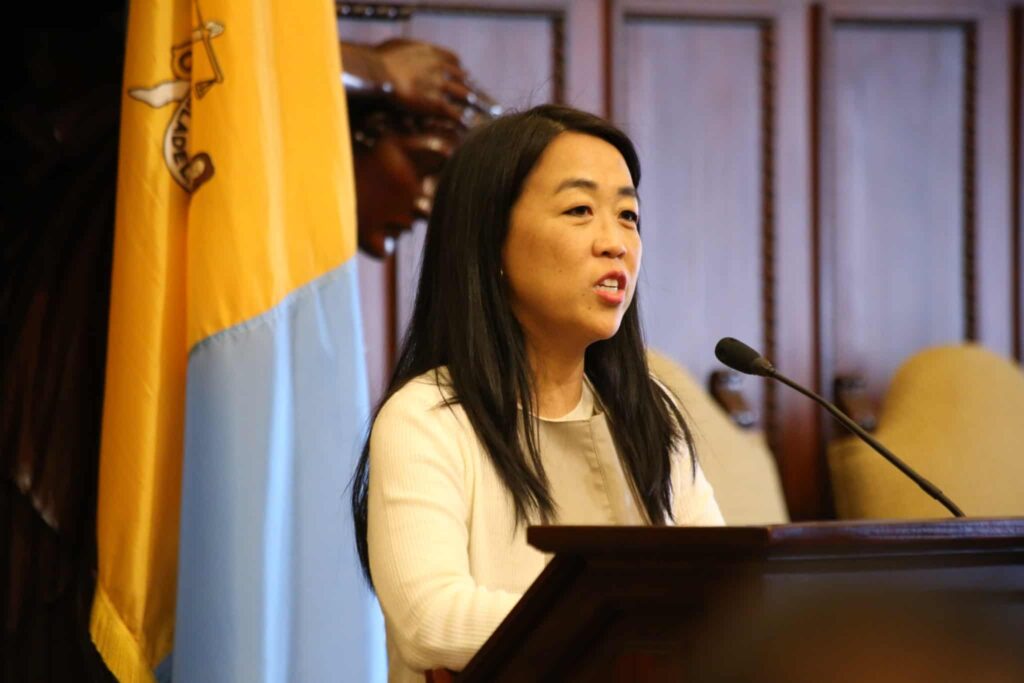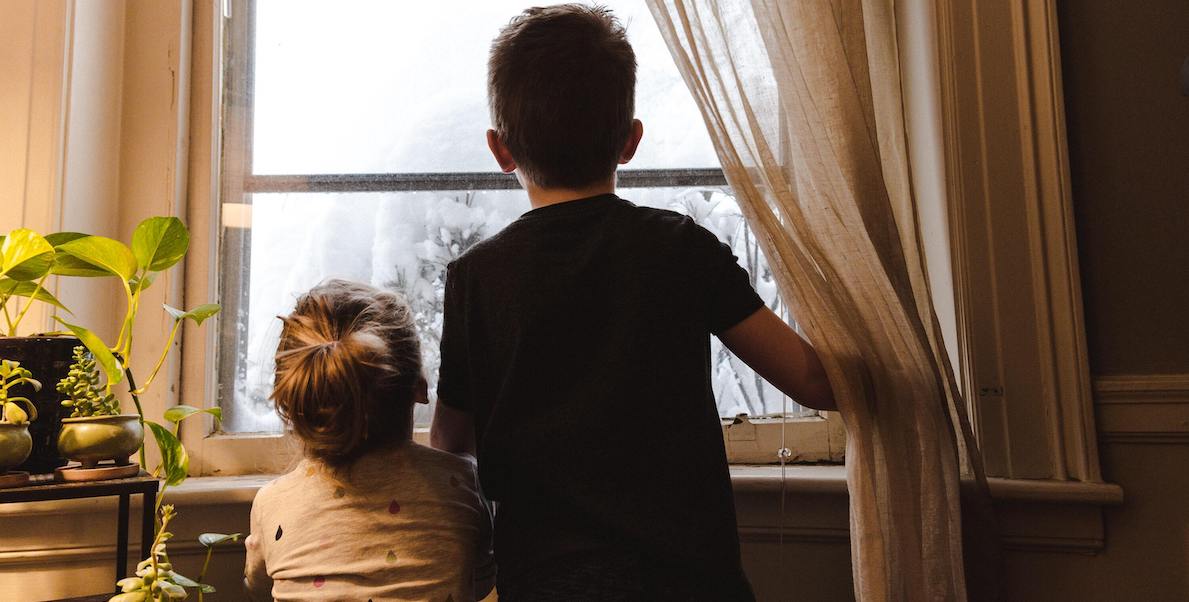Three months after giving birth, Natasha* brought her baby home to an apartment in West Philadelphia. There, the little girl learned to crawl and walk, talk and play. She went to preschool in the neighborhood and, this fall, started kindergarten. “It’s the only home my daughter has ever known,” Natasha says.
But that sense of stability Natasha took pride in providing was nearly stripped away when, last spring, Natasha was laid off from her job working in the corporate office of a retail chain. She’d never fallen behind on rent before, but with unemployment payments slow to kick in and insufficient to cover her other basic expenses, her building manager came knocking in July.
Instead of threatening eviction, however, Natasha’s building manager did something that, just a few years ago, wouldn’t have been an option in Philadelphia: She referred Natasha to Philadelphia’s Eviction Diversion Program (EDP), a collaboration between the City, legal support groups, housing counseling nonprofits, landlord advocacy organizations and others. It helps tenants at risk of being evicted go through mediation with their landlords to come up with a solution to keep people housed — and landlords paid.
“Local government can move mountains and be the catalyst for change,” says Councilmember Helen Gym.
For many families, the EDP represents more than a financial transaction. By steering tenants away from eviction proceedings — a process in which less than 10 percent of tenants, compared with more than 80 percent of landlords, have historically had legal representation — Philadelphia’s program allows renters to avoid significant damage to their credit and their ability to secure desirable housing in the future.
But the benefits of the EDP will likely go well beyond that. Matthew Desmond, the author of the Pulitzer Prize-winning book Evicted and the principal investigator of Princeton University’s Eviction Lab, points out that evictions affect all aspects of people’s quality of life, from depression and suicide to job loss; families who are evicted are also more likely to relocate to neighborhoods with higher rates of poverty and crime.

Or as Natasha says, “Eviction would’ve been devastating. Not only would it have meant shaking up my life and my child’s life, but once you apply for new housing, people see that mark on your credit history and turn you away.”
Connecting the dots
The roots of Philadelphia’s eviction diversion program can largely be traced to four key factors: a City-issued report, a small pilot that followed, the Covid pandemic, and the infusion of federal Covid relief funding.
“I never thought I’d live to see the day when included among my recommended reading is a government taskforce report, but it’s really excellent,” says Sue Wasserkrug, a lawyer and the director of mediation at CORA Services, Inc., the Philly nonprofit that offers a range of family and youth services.
Wasserkrug is referring to the recommendations that came from Mayor Jim Kenney’s 2018 Taskforce on Eviction Prevention and Response, which was created in response to the city’s affordable housing crisis. In the year before the report was issued, landlords in Philadelphia filed for 24,000 evictions.
Among the 17 recommendations in the report was a proposal to legally require landlords and tenants to go through mediation — before the landlord could go to court and file for an eviction. “It was a recognition that once there’s a filing on someone’s record, it stays on their records and [future] landlords can see it without knowing what the outcome of the filing was,” Wasserkrug explains. “But in many cases, mediation works without court intervention.”
Then, in 2019, the year after the report came out, the City got a small grant from AARP to do a pilot project incorporating the prefiling landlord-tenant mediation. “It was extremely small,” Wasserkrug says. “There was only enough money for us to do two or so months of work. But when we were able to get landlords and tenants to the table, it was incredibly successful.”
Like so many other pilots in Philly, the program could’ve gone nowhere. But then Covid hit, creating a backlog of cases. And though an eviction moratorium was established during the early months of the pandemic, Philadelphia courts interpreted that moratorium as only applying to the last step in the process, says Vik Patel, a supervising attorney in the Housing Unit at Community Legal Services (CLS). “Which meant that a landlord could still file an eviction case and get a judgment,” says Patel.
As courts prepared to re-open in September 2020, there was a fear that the backlog of eviction cases would turn into an avalanche of people losing their homes. “Not only did you have six months’ worth of landlords who would’ve been filing even without Covid being a factor, you now had all the additional tenants who lost income because of Covid and had landlords who wanted to evict them,” Wasserkrug explains.
In anticipation, that summer City Council created (and Kenney signed) the Emergency Housing Protection Act, which required landlords to pursue mediation in cases where the basis of the potential eviction was an inability or nonpayment of rent due to Covid-related financial hardship. “Because we had done the AARP pilot, we were able to act with breakneck speed,” Wasserkrug says.
The City was able to use federal funding from multiple rounds of Covid relief funding to help pay for the program, and it pulled in CORA to oversee mediation. CORA immediately got to work recruiting and training dozens of volunteer mediators.
The City also tapped housing counseling agencies, such as CLS, to work with tenants, helping them come up with realistic repayment timelines and connecting them to other resources. Natasha, for example, was able to apply for a grant that helped her cover the money she owed in back rent.
“COVID was a big, dark, ugly cloud – horrible, horrible. But the creativity that has come out of it has just been overwhelming,” says Sue Wasserkrug.
A pivotal shift
Patel, believes that the shift from the courtroom to mediation has been pivotal. “For a tenant, court proceedings are high-stakes and put so many other parts of their lives in jeopardy. Having a misstep in court can have a huge effect on someone’s life,” he says. “But a lot of times, if the landlord just knows what’s going on and sees that there’s a plan for the parties to move forward together, it prevents needing to go any further in the eviction process.”
The City facilitated weekly meetings between all agencies involved in the program. They ultimately created an online portal where landlords could seek a diversion, which activated the process of involving mediators and housing counselors.
So far, the data suggests the program has had a significant impact. A recent White House summit on eviction prevention programs highlighted Philadelphia’s efforts, noting that 85 percent of cases in the city now succeed in avoiding eviction court. Wait times for hearings in the city have also been reduced by two-thirds, and the number of evictions in the city dropped to less than 7,000 in 2021 from 20,000 annually before the pandemic.
The Reinvestment Fund (TRF), a community development nonprofit that has been studying evictions in Philadelphia since 2016 (when they first identified a pattern of racial disparity in the types of neighborhoods where evictions are most concentrated), is working on a more complex analysis of the program. Who isn’t using the program — and why? How many of the cases that are mediated ultimately end up in court anyway?
“Trying to understand what happens with these diversion cases, what the impact of the program is, is incredibly complicated,” says Emily Dowdall, Policy Director at TRF. “We need to allow enough time to actually see some of the impacts before we can start saying what they are.”
Even before they get those answers, though, Dowdall will say that certain aspects of Philadelphia’s program — specifically the pre-eviction filing mediation requirement — is both rare, and remarkable. “By reducing the number of filings, you actually are going to have a much bigger impact on tenants than if you just help them resolve in post-filing.”
Critical collaborations
The EDP was a signature priority for Councilmember Helen Gym, who has been working with her colleagues in Council to address Philadelphia’s high number of evictions since 2016. “[Previously], everything seemed geared toward an eviction — especially if you were a woman and a mother, especially if you were a Black tenant, and especially if you were caring for a vulnerable dependent,” Gym says via email.
She welcomed the opportunities to work with advocates, the municipal courts, landlord associations, and multiple city agencies because, she writes, “Our success in reducing evictions as much as we did was because every one of these institutions changed their behaviors in order to see a different outcome for residents.”

Wasserkrug, too, believes the heart of this work came down to collaboration. “Covid was a big, dark, ugly cloud — horrible, horrible. But the creativity that has come out of it has just been overwhelming.”
She feels hopeful about what this experience has proven. “When people collaborate, the outcome is always more successful, because people have a say in what’s going to happen,” she says.
Critically, landlords have also been represented throughout the decision-making process. Andre Del Valle, Vice President of Government Affairs at Pennsylvania Apartment Association, says landlords have been able to make the program work thanks to the cross-collaboration between the various agencies involved in the program, and the funding provided by the federal government.
“Is it perfect? No. But we’ve been able to make it continue to work,” Del Valle says. He feels that in an ideal scenario, two provisions would be added to the process: One is allowing landlords to create a post-filing process, so that if mediation didn’t work out they wouldn’t have to wait another two to three weeks to start the court process.
The second provision would be for landlords to get paid during the required 30-day period during which the mediation could take place. “The government is forcing us to go 30 days with mediation, but in those 30 days we’re still not able to collect any rent,” says Del Valle. “So we want to make sure that we are not penalizing landlords for going through this process. They’re committed to preventing housing instability and preventing evictions — we just want to make sure that landlords, whether they have 500 units or one, are able to get those arrears and funding to continue to be a landlord in the city of Philadelphia.”
Looking ahead, Gym’s office says that the city has $45 million in local funding for rental assistance over the next two years and that the Neighborhood Preservation Initiative (NPI) can fund the management of the program through 2024.
“This work is among my proudest achievements on Council because it demonstrates the tremendous power of bold municipal policy to deliver in a crisis and to chart a path toward stability beyond that crisis moment,” Gym says. “Local government can move mountains and be the catalyst for change.”
As for Natasha, the outcome of her experience with the EDP was more personal, if no less important. Having the stability of remaining in her home, she says, allowed her to pursue coursework in becoming a phlebotomist, which will enable her to start an entirely new career path. “If I’d had to move in with family members and put my stuff in storage or be out looking for new housing,” she says, “I wouldn’t have had the stability to better my life and my daughter’s life.”
*Last name withheld, to respect the identity of the minor referenced.
![]() MORE ON HOUSING SOLUTIONS FROM THE CITIZEN
MORE ON HOUSING SOLUTIONS FROM THE CITIZEN




